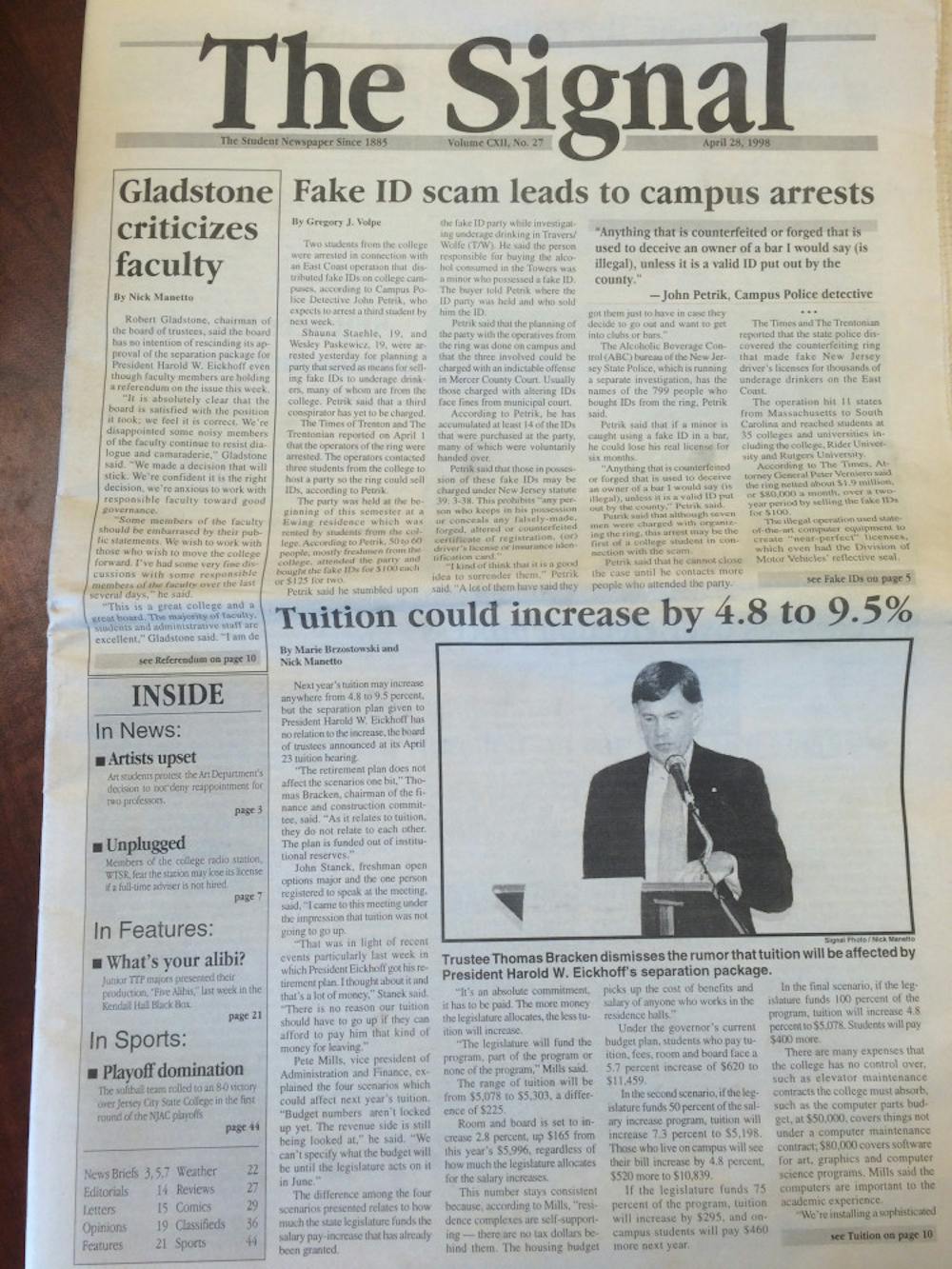By Jessica Ganga
Features Editor

With rising tuition costs being an issue across the country, it’s interesting to see that, even back in 1998, it was still an issue for students attending college. At the College, Marie Brzostowski and Nick Manetto reported on how the College’s tuition cost was possibly increasing from 4.8 to 9.5 percent. Students would have to pay either $11,459 or $10,839, depending on which plan was chosen. Students that attend the College today pay roughly $25,000 per year to live on campus. If only we were born in the ’80s.
Next year’s tuition may increase anywhere from 4.8 to 9.5 percent, but the separation plan given to President Harold W. Eickhoff has no relation to the increase, the board of trustees, announced at its April 23 tuition hearing.
Pete Mills, vice president of Administration and Finance, explained the four scenarios which could affect next year’s tuition. “Budget numbers aren’t locked up yet. The revenue side is still being looked at,” he said. “We can’t specify what the budget will be until the legislature acts on it in June.”
The difference among the four scenarios presented relates to how much the state legislature funds the salary pay-increase that has already been granted.
“It’s an absolute commitment, it has to be paid. The more money the legislature allocates, the less tuition will increase.
“The legislature will fund the program, part of the program or none of the program,” Mills said.
The range of tuition will be form $5,078 to $5,303, a difference of $225.
Room and board is set to increase 2.8 percent, up $165 from this year’s $5,996, regardless of how much the legislature allocates for the salary increases.
This number stays consistent because, according to Mills, “residence complexes are self-supporting — there are no tax dollars behind them. The housing budget picks up the cost of benefits and salary of anyone who works in the residence halls.”
Under the governor’s current budget plan, students who pay tuition, fees, room and board face a 5.7 percent increase of $620 to $11,459.
In the second scenario, if the legislature funds 50 percent of the salary increase program, tuition will increase 7.3 percent to $5,198. Those who live on campus will see their bill increase by 4.8 percent, $520 more to $10,839.
If the legislature funds 75 percent of the program, tuition will increase by $295, and on-campus students will pay $460 more next year.
In the final scenario, if the legislature funds 100 percent of the program, tuition will increase 4.8 percent to $5,078. Students will pay $400 more.







